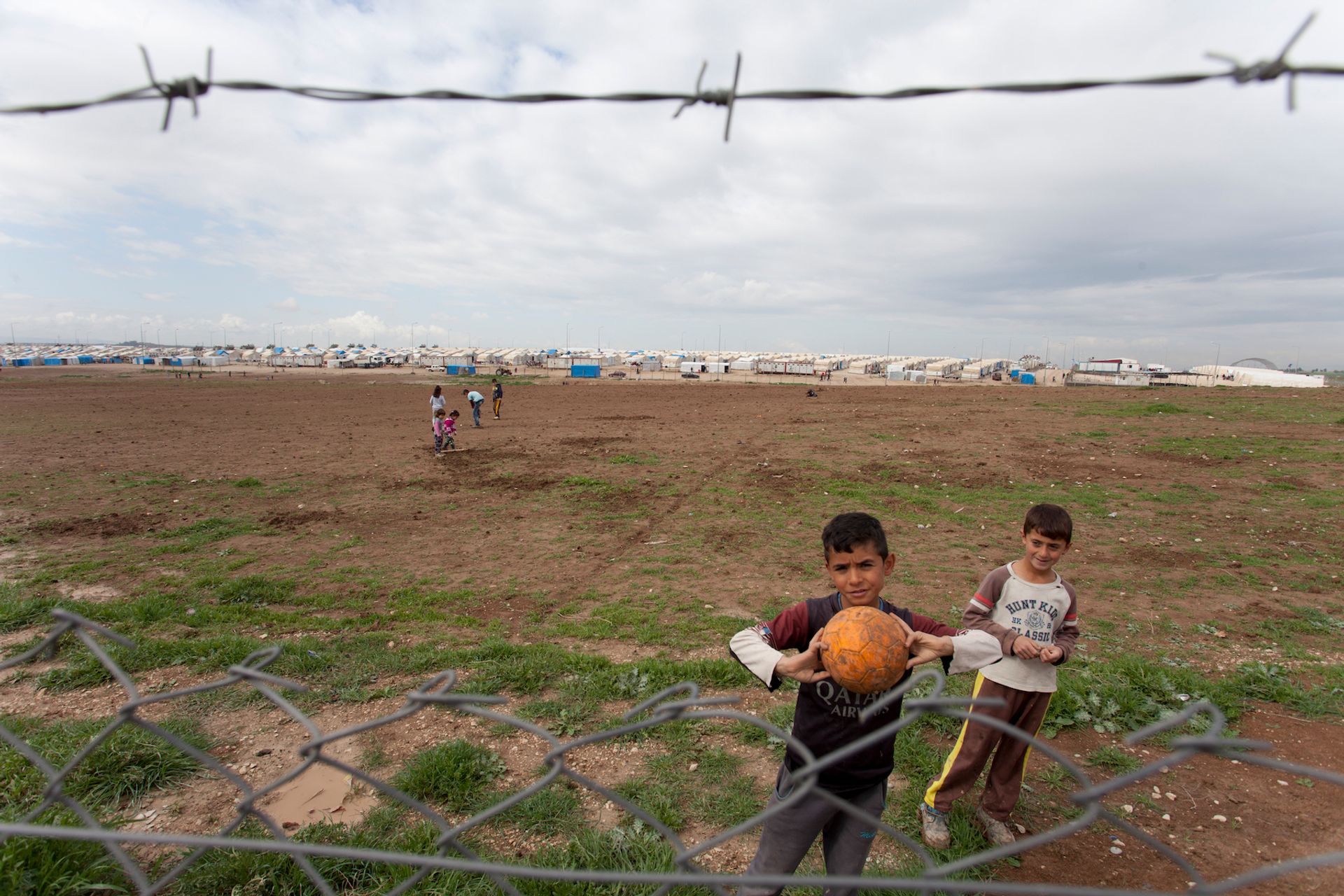The artist Francis Alÿs is exploring the idea of a film about children playing in the refugee camps he visited in northern Iraq at the end of February. The Belgian-born, Mexico City-based artist was on his first research trip to the region, where he filmed and took photographs of children playing games such as marbles and hopscotch in Camp Kabarto and Camp Shariya.
Kabarto is home to 5,000 families, mainly from the Yazidi sect, who were forced to flee when Islamic State attacked Sinjar in 2014. It is estimated that 3,300 Yazidi families (17,000 people) from Sinjar are living in Camp Shariya.
The Baghdad-based Ruya Foundation invited Alÿs to visit Iraq to explore the possibility of creating a work about the refugee camps as part of Creativity for Survival, a wider project and series of workshops run by the foundation in response to the humanitarian crisis. Before visiting the camps, Alÿs hosted a workshop with artists and art students in Baghdad.

Accompanied by Tamara Chalabi, who chairs Ruya, Alÿs also visited the Yazidi shrine of Lalish. There they met the head priest, who gave them a tour of the temple and surrounding area. Alÿs took an interest in the local architecture, as well as the spatial layout of the refugee camps and how people organise themselves there, including the building of mud ovens and other traditional structures.
Alÿs and Chalabi held meetings with local activists, artists and intellectuals to discuss the threat to Yazidi culture. In Dohuk they visited Ammar Khidir, a local artist who is working on a series of figurative paintings depicting the massacres in Sinjar.
Since 1999, Alÿs has made several videos about children’s games in Mexico, Afghanistan, Belgium and Jordan, among other countries. At the Istanbul Biennial last September he unveiled The Silence of Ani, a film set in the ruined medieval city of Ani on the Turkish-Armenian border, formerly the capital of the Armenian kingdom and home to 1,001 churches, but now located on an empty plain. The film shows children playing with bird warblers amid the ruins.
The Ruya Foundation is already working with artists including Baghdad-based Salam Atta Sabri and Ai Weiwei. Last year, the Chinese artist chose 500 drawings made by refugees in northern Iraq for display in the Iraqi pavilion at the Venice Biennale and publication in a book, Traces of Survival.

